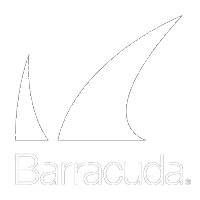Case Studies
Catholic Archdiocese of Perth Partners with Ricoh to Transform Highly Valuable Data Archives
Thursday, November 09, 2023
Catholic Archdiocese of Perth Partners with Ricoh to Transform Highly Valuable Data Archives
Established in 1845, The Catholic Archdiocese of Perth is one of WA’s oldest and largest community based religious organisation, with 109 parishes across a large portion of southern Western Australia. In addition, the Archdiocese also supports the social, health and educational wellbeing of the wider WA community through its provision of 89 primary schools, 33 secondary schools, 26 service-based organisations, a university, and four hospitals.
Due to its long-term presence and ongoing, modern day service provision to the WA community and beyond, the Archdiocese holds rich and valuable data that not only offers insights into the history of the state but importantly, has the capability to inform a faster and better way to deliver services to the people its multiple organisations serve.
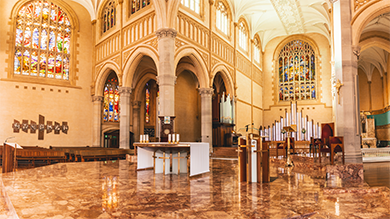
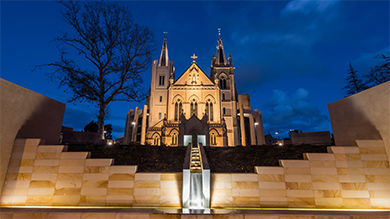
The challenge
The Archdiocese holds a wealth of data, stories, and histories that stretch close to two centuries. All of this information has been held primarily in paper form and stored in various locations, reflective of the Archdiocese’s presence and work across the southern area of WA.
The volume of paper-based data that is not centrally located offers immediate challenges of difficult information accessibility and resulted in delays when requests were made both from within the organisation and by external parties. In addition, to meet requests for information and ensure that the paper information is documented and preserved in its current format, the Archdiocese has to rely on high levels of human resourcing.
“On average, it would take up to a fortnight for our Archives to be able to respond to an information request and our staff would have to search through multiple files in multiple locations,” says Odhran O’Brien, Archdiocesan Archivist Director.
“With the increasingly digital world around us and focus on accessibility not only for a more efficient way of working, but to continue to provide essential services effectively in the 21st century, we knew things had to change.”
O’Brien says the need for a digital transformation of the Archdiocese’s record keeping and information governance was accelerated with the Royal Commission into Institutional Responses to Child Sexual Abuse. The Commission published an entire volume of recommendations on record keeping best practices and, and true to the Archdiocese’s commitment to embrace the report, a decision was taken to find a more efficient method for archiving information.
“One of the key recommendations of the Commission highlighted the importance of aligning our information governance and management with recognised international standards. By doing so, we appreciated the opportunities and possibilities that a robust and secure information governance would provide to our Archdiocese, our clergy, and staff which ultimately can enhance positive outcomes for the people and community we serve.”

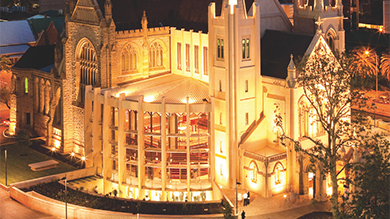
The solution
For more than a decade, the Archdiocese has professionally collaborated with Ricoh, through the provision of a secure and accessible document management system for the Archdiocese’s property and financial functions.
“The long term, successful partnership with Ricoh, along with its reputation for being a leader in its field, provided the Archdiocese with further confidence when it came to extending the partnership to implementing a new document archival system,” says O’Brien. “After careful evaluation of a recommended solution, a decision was made to deploy Ricoh’s Laserfiche Records and Workflow platform.”
O’Brien says the opportunity was also taken to put in place a governance strategy to guide how information was managed across the entire organisation including the central administration facility of the Archdiocese, together with all its parishes and agencies.
Key workflows were assessed and amended to ensure data could be more easily managed and accessed. More than 400 existing paper-based files also were digitised and stored within the organisation’s datacentre.
“The work with Ricoh and Laserfiche became part of a broader strategy we call ‘Serving the Church in the Digital Age’,” he says. “The strategy reflected the Archdiocese’s commitment and appreciation of a complete digital transformation journey. Ricoh’s knowledge and expertise has certainly contributed to early and continuous implementation of our strategy.”
The benefits
Through the implementation of Ricoh’s Laserfiche system and accompanying information governance strategy, the Archdiocese has indicated initial operational benefits for its Archives and wider staff. Some of the ways in which this digital transformation is supporting the Archdiocese’s was of working include:
- More efficient archiving The successful deployment of Ricoh’s Laserfiche project at the Archdiocese has contributed to a more streamlined document archiving and retrieval process. In particular, Archives staff are now managing multiple information silos they need in one online space, due to the single, centralised source that Laserfiche offers.
- “Laserfiche has provided us with a secure environment that allows records to be managed centrally and in a way that ensures access is provided to the right people at the right time,” says O’Brien.
- Key-word search capabilities With records now held digitally, users are able to conduct key-word searches to find the items they require. Searches that previously may have taken time to process can now be completed in seconds. “This capability delivers particular benefits for our property and litigation teams who need to be able to readily search for older records and do so efficiently,” says O’Brien. “It is a game changer to the way we have been searching for records previously.” “For any information and data request, we can now readily source documents relating to particular people for the entire time they were with the organisation. Previously this would have been a completely manual process that could have taken some time and multiple resources to complete.”
- Supporting new ways of working The new Ricoh infrastructure allows various teams across the Archdiocese central administration, multiple offices and agencies to access records remotely. This was particularly valuable during the COVID lockdowns when many staff were working from home, and is a sustainable form of supporting a hybrid work environment. Remote access to records means information can be accessed quickly and workflow efficiencies can be maintained regardless of where staff happen to be located,” says O’Brien. “Digital transformation that offers accessibility wherever, whenever is also truly supporting the new ways of working and requirements of our Archdiocese and its people.”
In addition to these initial benefits, the Archdiocese has identified other future potential benefits as a result of the Laserfiche implementation. These include:
- Ensuring that data collection is maintained in one place to support data analysis and a maturing of the way data is used within the Archdiocese to inform decision making.
- Delivering a proactive risk management strategy through ensuring that records are digitised and backed up.
- Instilling a culture shift in information governance where team members are professionally developing skills within this space and can assist other colleagues and the wider stakeholder within the Archdiocese to embrace a more effective, safer and secure form of collecting, keeping and accessing data.
Future plans
With the Laserfiche platform now fully operational, there are plans to extend its use more widely within the whole of the Archdiocese. There are currently around 60 users, and this is likely to increase to about 80 during 2023.
“We are also focused on channelling as much of our day-to-day information as possible directly into Laserfiche,” says O’Brien. “As part of the Archdiocese Digital Strategy, we are always looking at ways to innovate the way we access information and communicate digitally.”
“An app on each staff member’s mobile phone so they can capture and digitise documents as part of their daily workflows is an idea that has received quite a bit of support as this will also support our agencies workers when they need to travel to the areas and homes of the people we serve and record or access data remotely and easily, at the touch of a button.”
“We look forward to working with Ricoh on other innovations in the future. The team have been extremely proactive, and I am confident of their full support as we continue to undertake our digital transformation strategy.”







